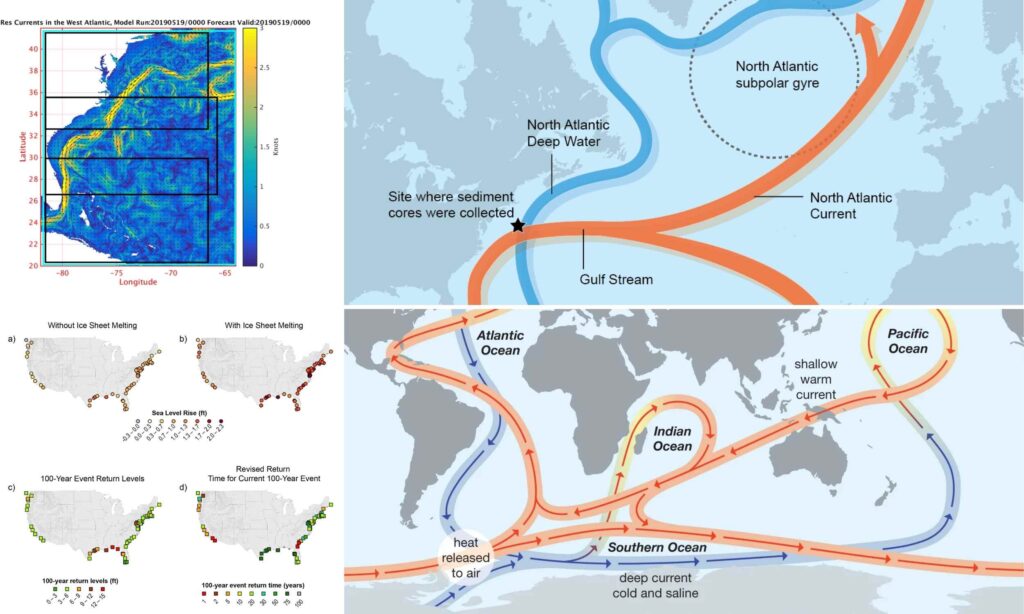The Arctic is warming rapidly, raising concerns about its impact on Atlantic currents, particularly the Atlantic Meridional Overturning Circulation (AMOC). This system, crucial for distributing heat and regulating weather, could weaken due to an influx of freshwater from melting ice. Experts, including Céline Heuzé, warn this disruption could lead to a significant slowdown or collapse of AMOC, impacting sea levels along the U.S. East Coast, including Florida and the Carolinas.
The article highlights the role of ocean currents in affecting tidal patterns and storm surges, which have already prompted cities like Norfolk, Virginia, to explore flood defenses. Efforts to mitigate greenhouse gas emissions and enhance coastal infrastructure are crucial, as the consequences of climate change extend beyond coastal regions.
Urban planners and engineers are focusing on sustainable practices, while education on climate science is becoming a priority for younger generations. Overall, the article emphasizes the importance of proactive measures to adapt to and mitigate the effects of climate change on ocean currents and coastal communities.
Source link


